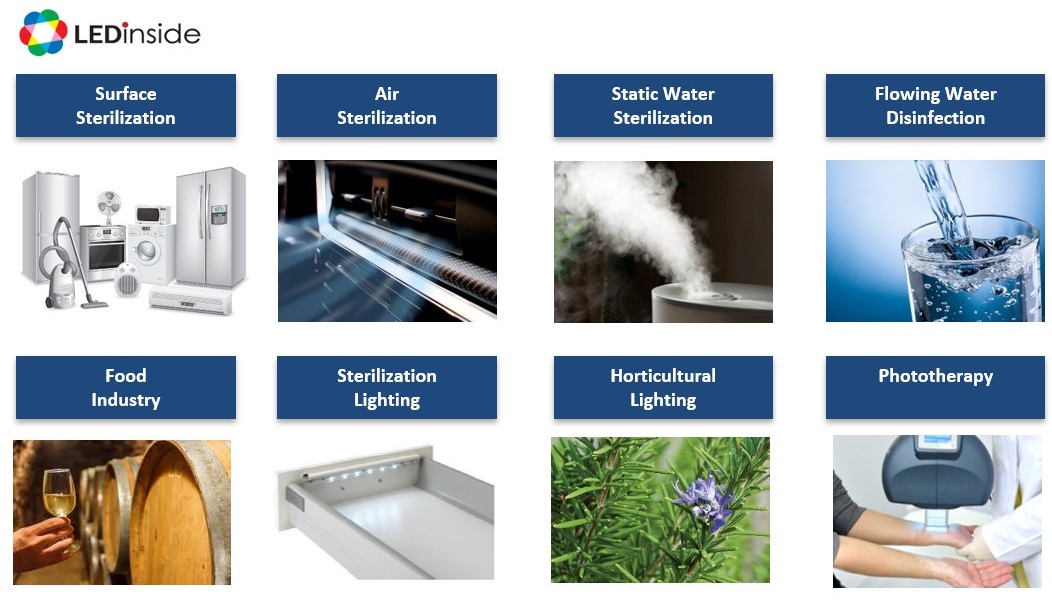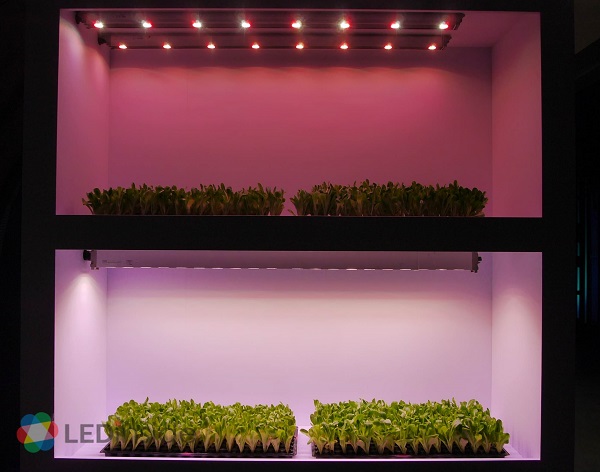COVID-19 pandemic has led to lockdowns across the world with pause in business operation and production, resulting enormous impact globally. The technology industry, as one of the most affected field, not only needs to tackle the challenges brought by the coronavirus but also has to reconsider its strategies and operating plans for the post-pandemic world.
As for the LED industry, since the supply chain mostly locates in Asia with the majority of production coming from China, plus high inventory due to oversupply in the past few years, the coronavirus epidemic has relatively slighter impact on the industry. Only the packaging companies suffered a little from lack of manpower during the China lockdowns. Therefore, it is not likely to see much changes in the ecosystem and supply chain structure of the LED industry.
Nevertheless, the COVID-19 pandemic does drive more application opportunities for the LED industry including germicidal UVC LEDs, social distance controlling infrared sensors, and horticulture lighting to back food supply.
UVC Disinfection and IR Sensing People Flow Control Driven by Epidemic Prevention Awareness
To avoid infection of the droplet transmitted COVID-19, consumers’ awareness of disinfection and sanitization is surging, boosting needs for germicidal products. Featuring disinfecting function, UVC LED thus become a hit.
UVC LED suppliers used to reply on increased efficiency and competitive prices to receive branding contrast. However, affected by the coronavirus epidemic, UVC LED with disinfecting function is becoming a standard component for home appliance, making its way to the mainstream market. The demands for UVC LED continue to grow and LEDinside forecasts that the market revenue of UVC LED package will reach 60% CAGR during 2019 to 2024.

Currently, surface and air disinfection are the major foci of UVC LED applications. Surface disinfecting applications cover UVC LED embedded sweeping robot, portable product, disinfecting boxes and more. For air disinfection, UVC LEDs are often integrated with air conditioners, air purifiers or implemented with automobiles for interior disinfection.
Apart from disinfecting UVC LEDs, IR LEDs with sensing function can be applied for people flow monitoring in public areas, helping individuals to keep social distance when lockdowns lifted.
Common applications for IR sensing are 3D scanning/sensing function for mobile devices with AR extension, face recognition and gesture control. It is also popular for robots, industrial automation and autonomous driving technology.
The COVID-19 pandemic has inspired a new application for IR sensing, that is, social distance control. IR sensing technology enables anonymous and accurate track and analyze the flow of people, supporting malls, public building, banks, airports and other venues visited by large amount of people to monitor people flow and maintain safe social distance between individuals.
Vertical Farming Strengthens Food Self-sufficiency, Realizing Post-pandemic Lifestyle
Lockdowns and strict travel restrictions all over the world for containing the spread of coronavirus has also resulted in trade suspension. Many countries and areas that heavily reply on food import thus suffered from the crisis of food shortage. The issues of maintaining food security and increasing food self-sufficiency are becoming even more critical during and after the crisis of COVID-19.
Innovative agriculture technology such as vertical farming base on LED lighting and hydroponics breakthroughs the limitation of weather conditions and is regarded one of the solutions to tackle the problem of global food shortage.

LEDinside observed that many local governments and enterprises partner to set up cultivation facilities since 2020, promoting agriculture transformation. They also try to develop urban farming and plant factory module to supply food in the cities. Singapore and UAE, both having 90% food imported, recently announced that they are investing large amount of money to establish domestic vertical farm facilities or transform spare areas in the cities such as rooftops into farms.
Apart from serving as a major light source for large scale vertical farming facilities, horticulture LED lighting can also be used for household farming, allowing consumers to grow their own food during the lockdown and enhancing food security. Combining both market driven by the agriculture transformation, it is believed that demands for horticulture LED lighting will keep rising.













